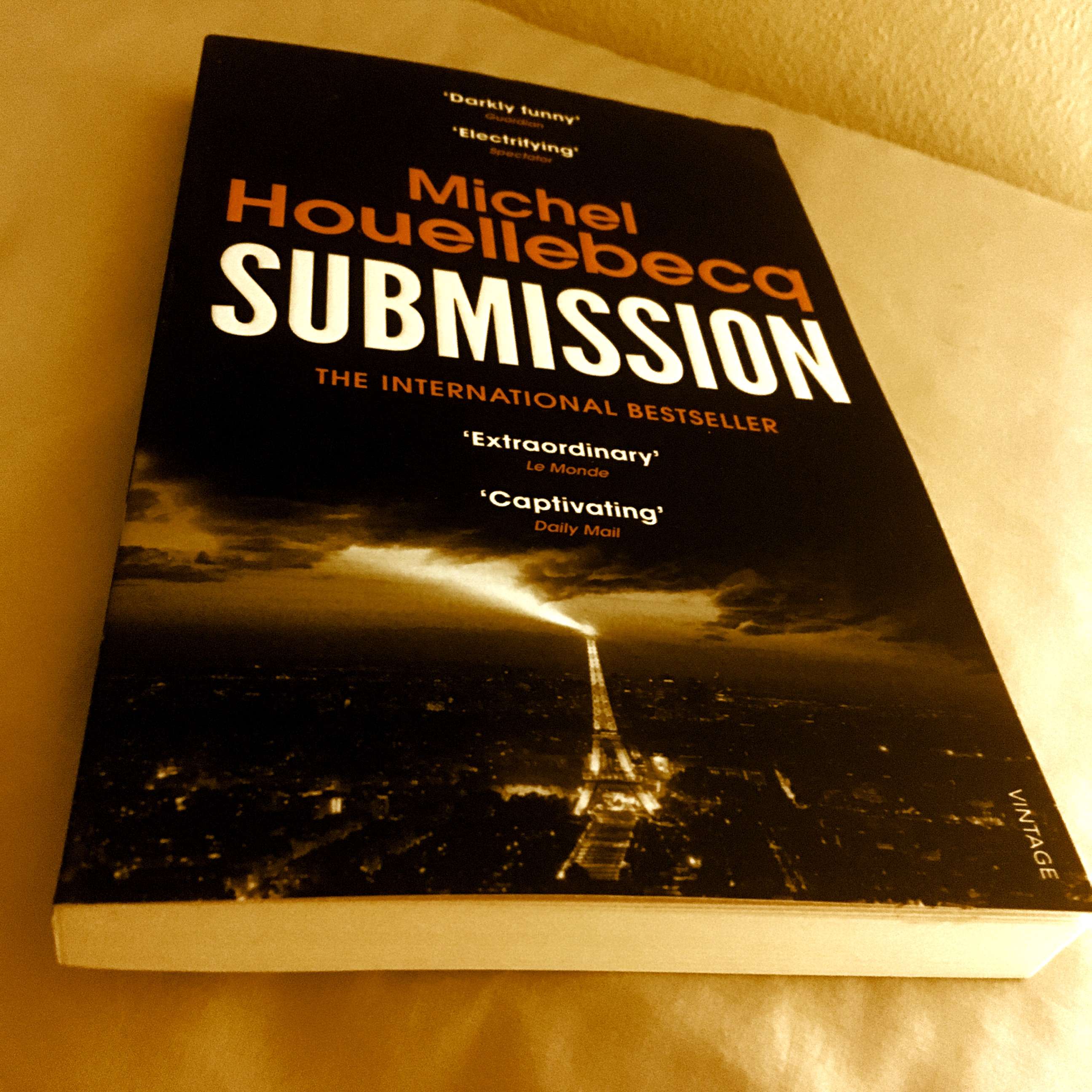"For men, love is nothing more than gratitude for the gift of pleasure, and no one had ever given me more pleasure than Myriam".
I swore to myself I'd never read another Houellebecq. My resolve was tested by all the heat this new novel has attracted. Certainly he can write, he always conjures up some hideous male characters that are quite palpable. One gathers he's probably a little back door obsessed, like his protagonist and a number of basically insecure men who need to assert themselves by constantly testing the barriers to make themselves feel more potent. In any case, I always feel a little grossed out by the detached and loveless couplings within his novels that I've read to date. His character thinks he's in love only when the object is removed, I digress however.
Much of the hype/scandal around this particular novel goes to the topical subject matter. In an atmosphere of fear around the rise of Islam, Houellebecq takes us to a potential near future in France, where Muhammed Ben Abbes of the Muslim Fraternity does to power and the separation of church and state, a hallmark of the French way of life is destroyed. It feels very much like a personal response from a literary elite, questioning how his life would change within these new circumstances, personalised through the eyes of the narrator. So is he being merely darkly humorous when his final take away from this erosion of free will, from exile from his Jewish girlfriend ( supposedly a love interest and yet quickly written off with distance), is that he might have to accept conversion and no longer enjoy the sight of women in shorts, but hey it comes with teenage wives, so it can't be all that bad? Or is that just the final joke?
Clearly I did not enjoy this work and yet I cannot deny its brilliance. It feels like lifting the lid on the middle-aged male, literary snob for whom women are valued only in youth and numbers. Sex is reduced to hum drum sport that seems devoid of anything meaningful, he's depressed, lost and sad. Just as our "hero" can't perform with the first prostitute he encounters, when there's more than one its fine, and he seems to take great pains in telling the reader about the size of his tip (the money, I mean, out of the gutter people). The protagonist's ability to merge with his surroundings is similarly ineffectual to begin with and he runs off to the country-side without enough petrol, before heading back to reality and eventually finding his rhythm there. The fact that I recall all these details (unusual for me) is due to a mix of disdain at the subject and wonder at its execution. The evocation particularly of a messed up political situation, violence ,confusion and then a strange shift into a new status-quo is particularly well done.
For someone like me, that craves equality for all, I feel Houellebecq's characters tend to personify the kind of creeps that constantly seek to keep women down because they feel threatened by them. Reducing women to footnotes, replaceable after a certain age when their minds have matured to fully comprehend their powers. This is my personal interpretation and I'm still optimistic that not all men are of that ilk.
4 out of 5 uncomfortable reads are a challenge of their own and help us better understand the world.

No comments:
Post a Comment